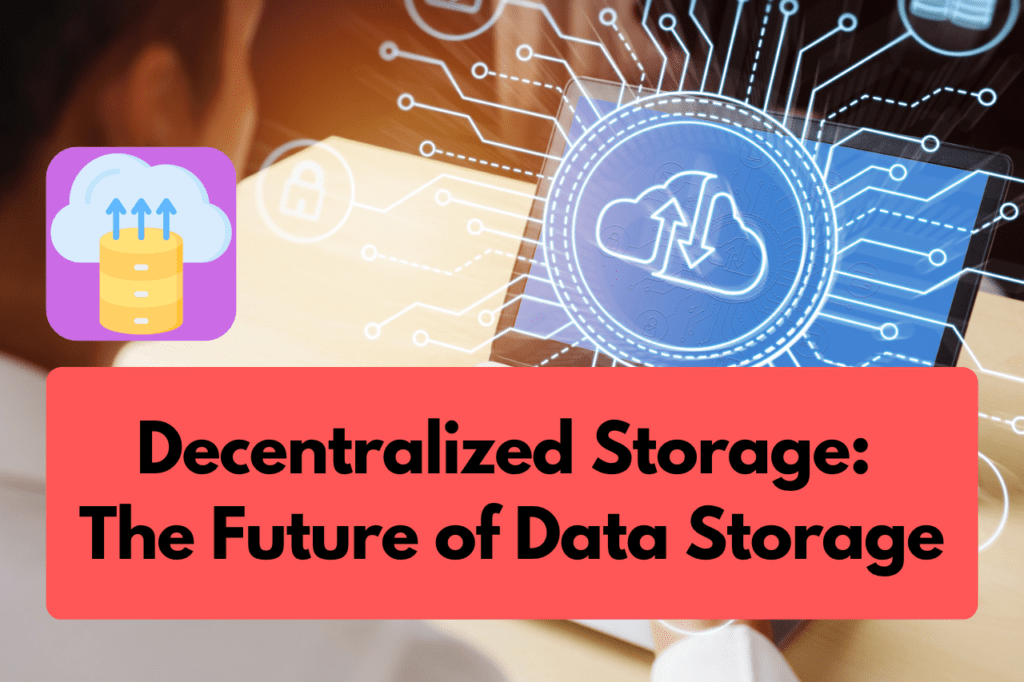
Introduction 🚀
In today’s digital age, data has become a valuable asset for individuals and organizations alike. With the increasing amount of data being generated every day, there is a need for efficient and secure data storage solutions. This is where decentralized storage comes in. Decentralized storage is a revolutionary technology that offers a secure, reliable, and efficient way to store data. In this article, I will explore the concept of decentralized storage, how it works, and its advantages. 🤖🔐💡
What is Decentralized Storage? 🤔
Decentralized storage refers to a network of computers that work together to store and retrieve data. Unlike traditional centralized storage systems that rely on a single server or data center, decentralized storage is distributed across a network of computers. This network is known as a peer-to-peer network, where each node in the network is connected to other nodes. Data is stored in small pieces, known as fragments or shards, and distributed across these nodes. This ensures that there is no single point of failure, and the data remains available even if some nodes in the network go offline. 💻🌐
How Does Decentralized Storage Work? 💪
Decentralized storage works on the principle of redundancy and encryption. When data is stored in a decentralized storage network, it is broken down into small pieces, encrypted, and then distributed across the network. Each piece of data is replicated across multiple nodes in the network, ensuring redundancy. This means that even if some nodes go offline or fail, the data remains accessible from other nodes.
When data is requested from the network, the nodes work together to retrieve and reassemble the data. Each node that has a copy of the requested data sends its fragment back to the requester, who then reassembles the data. Since the data is encrypted, only the requester has the decryption key, ensuring data privacy and security. 🔒🔑
Advantages of Decentralized Storage ✅
Decentralized storage offers several advantages over traditional centralized storage systems. Here are some of the main advantages:
- Security: Since data is encrypted and distributed across multiple nodes, there is no single point of failure. This makes decentralized storage more secure than traditional centralized storage systems. 🔒
- Reliability: Decentralized storage networks are designed to be highly reliable. Even if some nodes go offline or fail, the data remains accessible from other nodes. 🔄
- Efficiency: Decentralized storage networks are designed to be highly efficient. Since the data is distributed across multiple nodes, it can be accessed from multiple locations simultaneously, reducing the load on any single node. 💡
- Lower Costs: Decentralized storage networks can be less expensive than traditional centralized storage systems since they do not require a single data center or server. 💰
FAQ ❓
- Is decentralized storage secure?
- Yes, decentralized storage is more secure than traditional centralized storage systems since there is no single point of failure.
- How does decentralized storage ensure data privacy?
- Decentralized storage encrypts data, and only the requester has the decryption key, ensuring data privacy.
- Can decentralized storage networks be less expensive than traditional centralized storage systems?
- Yes, decentralized storage networks can be less expensive since they do not require a single data center or server.
Conclusion 🎉
Decentralized storage is a game-changer for the storage and management of data. It offers a more secure, reliable, and efficient way to store and retrieve data. With the increasing amount of data being generated every day, decentralized storage is the future of data storage. 🌐



